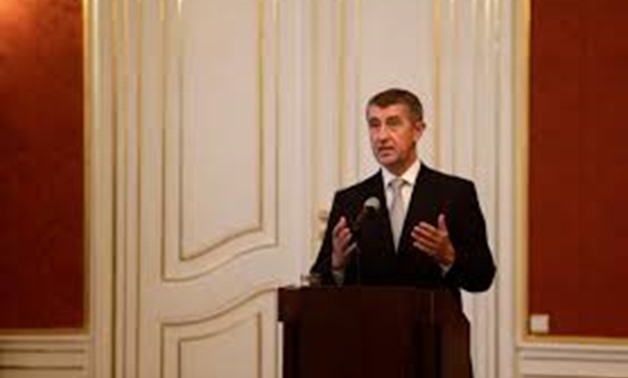
Czech newly appointed Prime Minister Andrej Babis attends a news conference at Prague Castle in Prague, Czech Republic December 6, 2017. REUTERS/David W Cerny
PRAGUE - 6 December 2017: The designated Czech Prime Minister Andrej Babis said that the European Union should not push Czechs over their refusal to shelter asylum-seekers, because it could strengthen extremist parties in the country.
The European Union’s executive will sue Poland, Hungary and the Czech Republic in the bloc’s top court for their refusal to host asylum-seekers, Brussels said on Thursday.
Babis, whose government is due to be appointed by President Milos Zeman on Dec. 13, repeated his country’s stance on migrants.
“The (European) Commission can withdraw the charge at any moment. We have to negotiate on this and to offer different models, like guarding the borders or help to other countries. But we don’t want any refugees,” Babis said in an interview published on Saturday by the Pravo daily paper.
He will represent his country at the EU summit on Dec. 14 and Dec. 15, where European leaders will discuss migration.
The Czechs have declined to shelter asylum-seekers despite an overall drop in arrivals due to tighter borders and projects beyond the EU’s frontiers to discourage migration to Europe.
The European Court of Justice (ECJ) cases could lead to financial penalties but may take months, or years, to conclude.
Babis said that by pushing on with the case, the EU might embolden extremist elements.
“The EU has to understand, that if it won’t listen to our proposals, then the influence of extremist parties like (Germany‘s) AfD or (Czech) SPD will grow, whose strategy actually is to destroy the EU,” he said.
Despite his ANO party winning the parliamentary election by a landslide in October, it is unclear whether Babis will be able to win a confidence vote for his government by mid-January as required by the constitution. He also faces the threat of prosecution in connection with his business interests.
The far-right, anti-EU and anti-NATO SPD party and the Communists have lent ANO support in several initial votes in parliament in return for committee posts for their members, raising the prospect that they may have some kind of agreement to back ANO.
But Babis reiterated in the Pravo interview that there was no deal in place and he would talk to all parties to either back the cabinet or abstain from the vote to help ANO win.

Comments
Leave a Comment